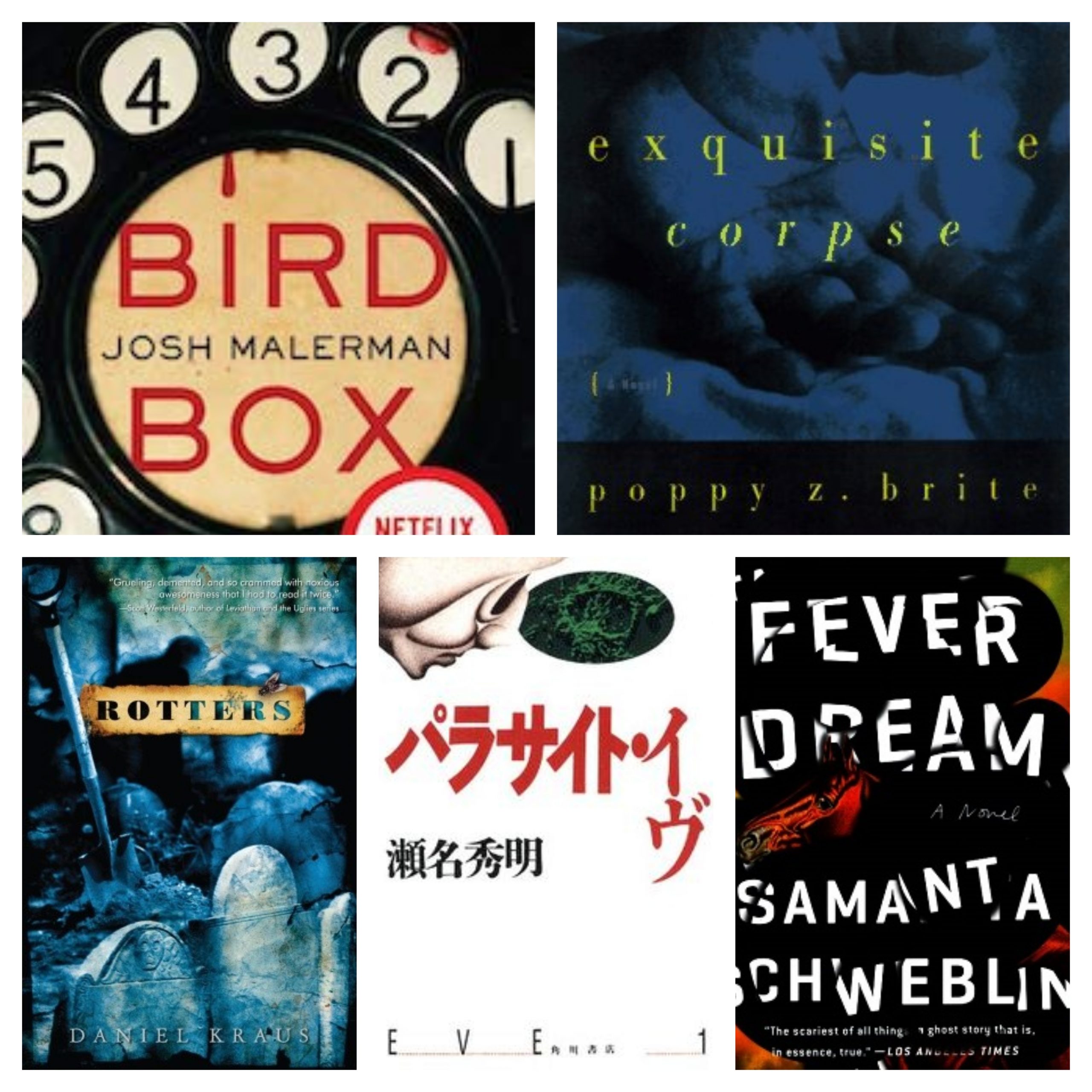What’s the state of modern horror fiction? Is it still thriving or dying on the vine? Well, compared to the boom of the ’70s and the ’80s, it certainly isn’t as prevalent as it was back then. But in some ways, horror fiction is as strong as it ever was, and I’m not talking about whatever Stephen King happens to release this year. Just in the process of this jaunt through the annals of horror literature, I’ve found quite a few newer novels I’ve liked quite a bit like John Langan’s The Fisherman and Christopher Beuhlman’s The Lesser Dead. If anything the modern horror novel seems to be bolder, exploring more diverse themes. Horror has always been a way of expressing political or social discontent, commenting on the state of the world, in a more subversive or satirical way that makes the message more palatable. In the last ten years, I feel like horror is being used to meditate on themes of feminism, body politics, LGBT ideals and other progressive political and social topics that may come across as stilted or preachy in a kitchen sink drama but in the warm and bloody embrace of horror comes across more palatable and creative. But modern horror isn’t just about making a statement. Sometimes they just want to bring on the blood and sleaze like in the good ol’ days. And that’s ok too.
In this entry, we have the source for one of the biggest successes Netflix has had in recent years, an incredibly controversial and violent landmark of gay horror, and journey through an underground (literally) world of grave robbing, a (very) slow burn medical body horror from Japan and a strange and unsettling ecological horror story.
Also for those just joining me, this is my journey through the following “Best of” Horror lists:
Reedsy Discovery Best Horror Books
Stephen Jones & Kim Newman’s Horror: 100 Best Books
Stephen Jones & Kim Newman Horror: Another 100 Books
If you want to check out my previous entries, they can be found here:
Part 13 | Part 12 | Part 11 | Part 10 | Part 9 | Part 8 | Part 7 | Part 6 |Part 5 | Part 4 | Part 3 | Part 2 | Part 1
Now let’s kick this thing off with some style!
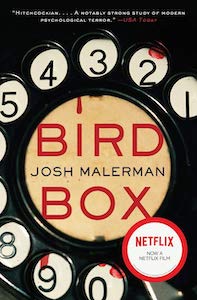
Bird Box (Josh Malerman, 2014)
Lists: NPR & Reedsy Discovery
To look at them is enough to send the average person spirally into madness and suicide. What are they? It doesn’t matter. The important thing is to avoid seeing them. Stay indoors. Cover the windows. Survive.
Of course Bird Box has now become quite popular thanks to the Netflix adaptation starring Sandra Bullock. I wasn’t the biggest fan of the movie, so it was interesting to go back and read the book to see how it fared. Overall, it’s a better experience but the book does suffer from some of the same structural issues the movie had. Malerman has this odd tendency to pre-diffuse tension, letting us know the characters are fine before launching into a story intended to generate suspense. This is too bad because Malerman does have a knack for writing a tense suspenseful scene when it’s setup properly (the scene at the well, some of the scenes on the river). The main climax of the flashback just felt a little too over-the-top given the seriousness of the narrative which I won’t go into details over to avoid spoilers. Suffice it to say, this is an ok book that could’ve been better with some changes to how the book is structured.
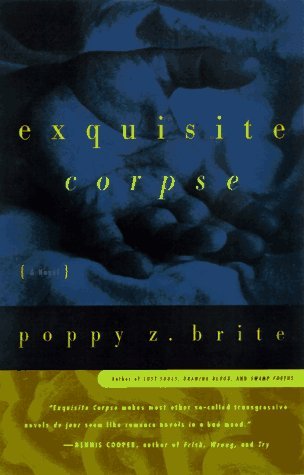
Exquisite Corpse (Poppy Z. Brite, 1997)
List: NPR
This is a book full of monsters. A serial rapist/murder of 23 boys from the UK, freshly escaped from prison and on a plane to the US. A self-destructive writer with a vitriolic pirate radio alternate personality spewing hate at the “breeders” of the world. A rich, murderous cannibal who comes from old money, killing those no one will miss in the confines of his vast estate. Looming large over all of them is that most vicious of monsters, the AIDS virus, doing more damage than all of them combined. And poor, misguided, cherubic Train caught right in the middle of all of it.
Jeepers…This is hands down the most extreme novel I’ve read so far in this endeavor I’m undertaking with extremely graphic sex and violence and chocked full of depraved, sadistic individuals doing terrible things to other people and each other. Brite is an excellent writer that really makes you feel the degradation and sleaze oozing from every pour of New Orleans. The characters are very well developed and interesting to follow. Really my biggest issue with the book is that I felt the third act felt a little rushed. I won’t say this is a book for everybody. In fact, there are damn few people this book is probably for. But it’s a hell of a fucked up ride for sure.
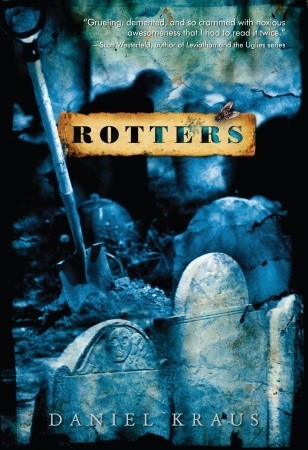
Rotters (Daniel Kraus, 2011)
List: NPR
When 16-year old Joey Crouch’s comfortable life in Chicago is upended by his mother’s untimely death, he’s sent packing to stay with his neglectful, dead beat father in a small Iowa town where he’s bullied and ostracized. His life takes a weird turn when he discovers that his father is a grave robber and part of a whole secret collective of “diggers”, each claiming a different region of the US. This opens up a whole new world to him where sends him down a dark path where he comes to lock horns with a ghost from his dad’s past.
Rotters, like Anna Dressed in Blood is slotted in with YA novels and definitely has some hallmarks of that style of novel with lots of aggressive teen angst, especially in the first half when Joey is being bullied in high school, watching a cute girl from afar, etc. This stuff reminds me of Charles L. Grant’s The Pet actually. The amount of abuse from other students and even a teacher is so over-the-top and farfetched that it comes across as harder to swallow than the secret grave robbing society stuff. Speaking of though, the grave robbing aspects of the story is definitely where it shines. Kraus is great at creating deliciously disgusting imagery of rotting corpses and stench. Unfortunately the pacing is very inconsistent. Some scenes that feel like potentially significant are glazed over and feel rushed. As an example, when Joey discovers what his dad does, he seems to just very suddenly decide to start grave robbing too and it almost seems to come out of nowhere. There’s also a later scene in the book where he’s put in extreme peril that was even set up earlier in the book, but Kraus seems to just rush through without much ado. Having said all that, the climax is really intense and exciting which bumps it up a little higher than it might have been otherwise. Overall, it’s not a bad book but with some better planning and pacing, it could’ve been much better.

Parasite Eve (Hideaki Sena, 1994)
List: Reedsy Discovery
Genetic biologist Toshiaki’s life falls to pieces when he’s told his wife has had a car accident and is in critical condition. To add to it, it doesn’t look like she will pull through and is he ok with proceeding forward with her wishes to donate her kidneys? It’s all too much. He makes the unusual decision to have her liver extracted as well, separating out the mitochondria DNA in a way to preserve part of her. But when he discovers the mitochondria has a kind of sentience, he is unable to predict the growing horrors that it will unleash.
So this one starts slow. Like reeeeeaaal slow. In the first half of the book, we are absolutely flooded with dense scientific terminology (the book has an extensive glossary in the back to explain in even more detail what the various terms mean) and only the smallest hints that something unusual is happening. Unusual heat. Mysterious THUMPing. Judging the book just on the first two acts, I’d almost go so far as to call it a dud. But it’s a good thing I kept going. The third act explodes into crazy bananas body horror that only the twisted minds of the Japanese can conjure. It’s grotesque and disturbing and is something to behold. This book requires a lot of patience to dig through but does actually pay off pretty well.
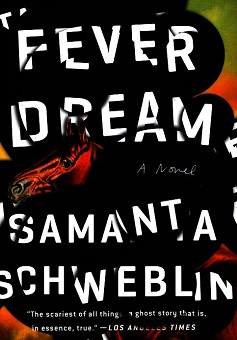
69. Fever Dream (Samanta Schweblin, 2017)
List: Reedsy Discovery
Fever Dream is a difficult book to summarize the plot of. The title is very apt. A woman and her daughter head out to the country where they meet another woman who tells them a story about her son David who became very poisoned. She took him to The Green House where a woman in ways of the occult transferred his consciousness along with half the poison to another body, allowing both body and soul to convalesce but forever separated. This is being told in 2nd person to David who urgently wants to convey information and focus on the “important thing”.
This Argentine surrealist novella is, as you can probably surmise from the description above, very odd and slippery. The narrative weaves in and around conversations unstuck in time, blurring together. It’s actually very effective at what it’s trying to do but may leave more questions than answers. Overall I liked it quite a bit though. It skirted the edge of incomprehension and fascination really well, delivering an interesting melted puzzle box of a short book than made for a compelling read.
While reading this one, I happened to notice that Netflix actually fairly recently back in September premiered a film version of Fever Dream, so I thought it’d be interesting to compare it with the book. In general the film is pretty faithful to the tone of the novel and creates a hazy, confusing mood that’s appropriate to the story. Having said that, much of the book is internal and it’s difficult to convey that in a film without endless voiceover which leaves the film feeling even more disjointed and confusing than the book at times. Still, I liked it and thought it was a reasonable adaptation to a book that would be pretty hard to adapt completely faithfully.

